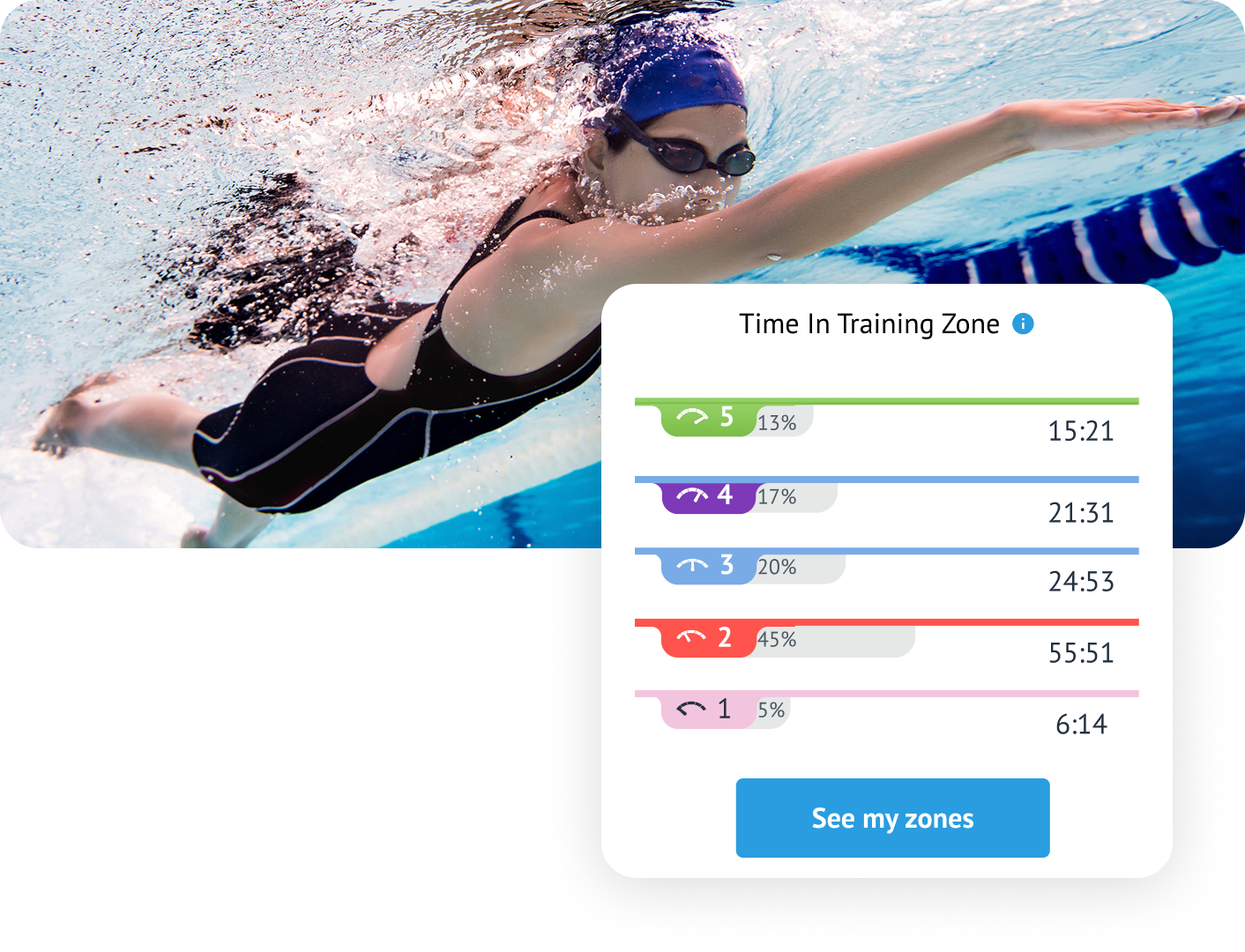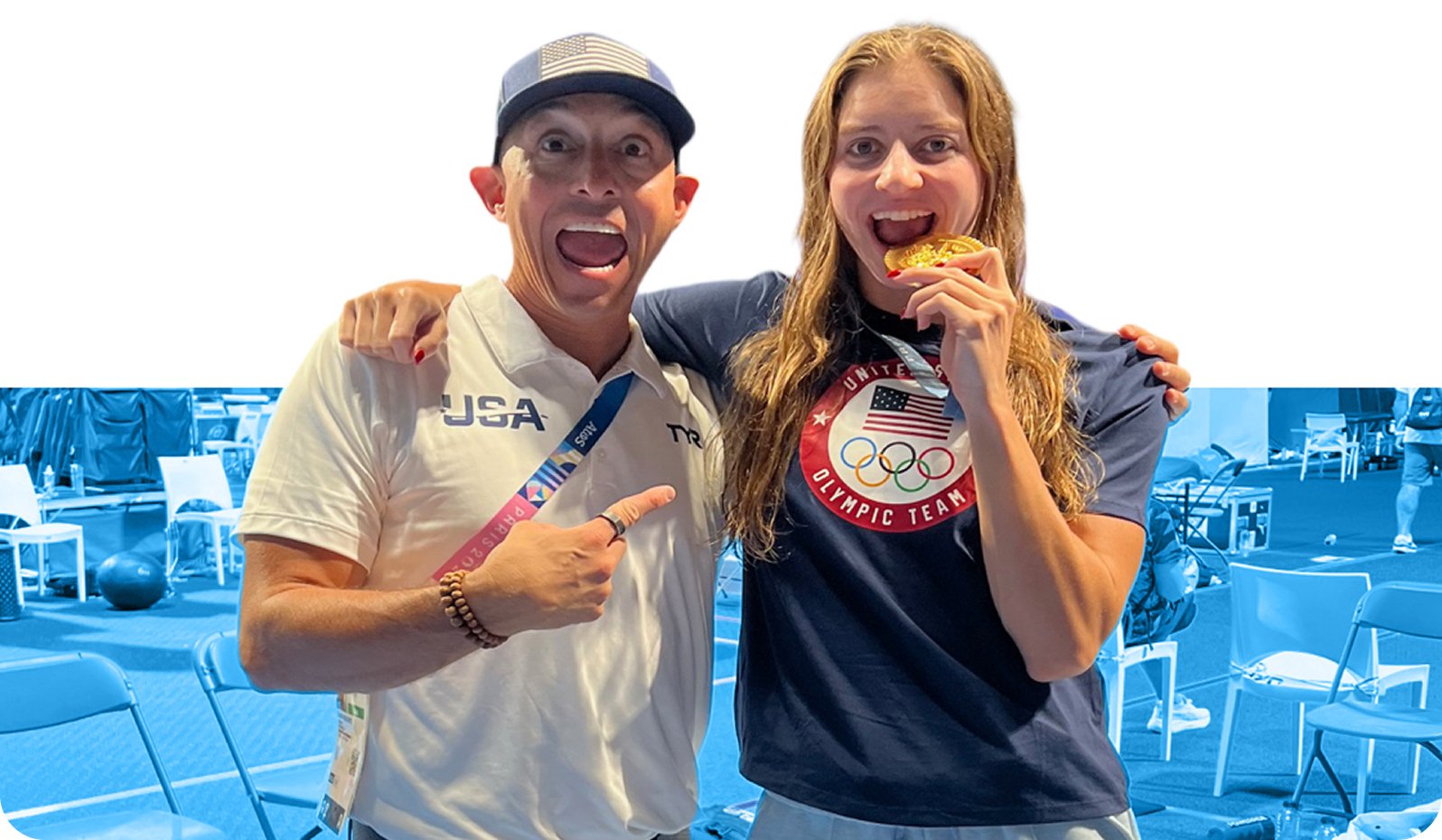The Triton Score will offer you great insights into your swimming. Readiness, Focus and Intensity scores will enable you to start seeing patterns in metrics you excel in and identify others you need to improve on. Keep in mind that low scores are not necessarily bad scores. In some cases, low scores will offer you the most incredible opportunities for improvement. In other instances, like metric tradeoffs, a lower score may well be the goal.
What influences Readiness, Focus and Intensity Scores?
1. Effort.
Sacrificing technique for intensity will negatively impact the Focus Score. Instead of locking stroke execution to swim, you try to power through the hard workout. And while swimming with high effort will give you a high-intensity score, if you aren’t swimming with a focus on technique, you miss out on significant improvements.
2. Fitness Level.
Your fitness level will directly impact your ability to hold technique and intensity through the workout. It is easier to focus on skill execution during more manageable sets, but it is paramount that you learn to be highly technical during the hard sets too. Start with a specific focus metric and work on it lap by lap. As you build your fitness, you’ll also build up your ability to hold technique longer.
Both strength and flexibility also affect performance in focus metrics. For example, push strength is directly influenced by your leg strength, while underwater speed is affected by your dolphin kick’s quality. In this case, flexible ankles and strong legs are crucial for a highly propulsive kick. Working on both flexibility and strength will set up an excellent foundation for getting your Focus Score higher.
3. Mindset.
The emotional and mental state can hinder a swimmer’s performance. Dreading the workout will impact your ability to ramp your effort through the sets, and the app will reflect that with a low-intensity score. A strong mindset will mean you can control performance and your reaction to it.
Some things help mentally prepare you and boost your performance. Whether it be music, self positive talk, your teammates or your coach, try to tap into any of these resources and get yourself pumped up about the workout.
4. Training.
The training objective itself will impact your scores. It is essential always to consider what the scope of the practice was. An anaerobic threshold practice will result in a higher intensity score in comparison to an aerobic practice. Stroke may also start to break down, resulting in a lower Focus Score that day. Fluctuations in scores are normal from one workout to the other. The goal is to see a steady improvement long-term.
5. Workload.
Training duration, frequency and intensity all influence your body’s Readiness to train. Doing too much too soon will leave you feeling sore and tired. In this case, both your RPE (rate of perceived exertion) and load monitoring will be affected, and the Readiness score may drop.
On the other hand, undertraining will affect the load monitoring that is part of the Readiness calculation. If you are not hitting a steady increase in frequency, duration or intensity, you will not see the improvements you want. The Readiness and Intensity scores will reflect that with low scores.
Key Takeaway
As swimmers, we often focus our attention on refining our strengths. It’s in our inherent competitive nature to fixate on excellent results. It’s important not to focus on the score and instead focus on what you can do to impact it positively. Identifying and conquering your weaknesses will yield the best return on investment. All you have to do is track your metrics, set realistic goals and strive to achieve them one by one.
Next, learn: How to Choose What to Focus on.

.png)


.png)
